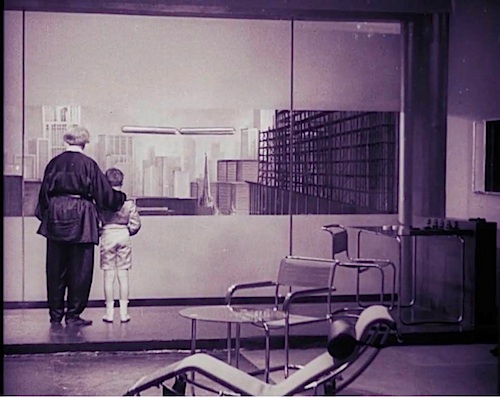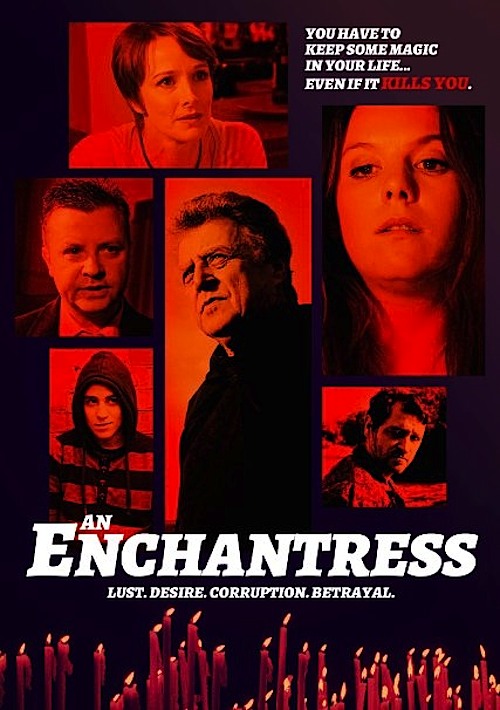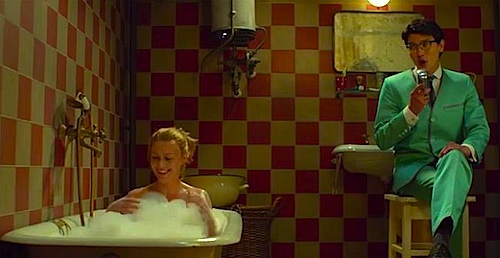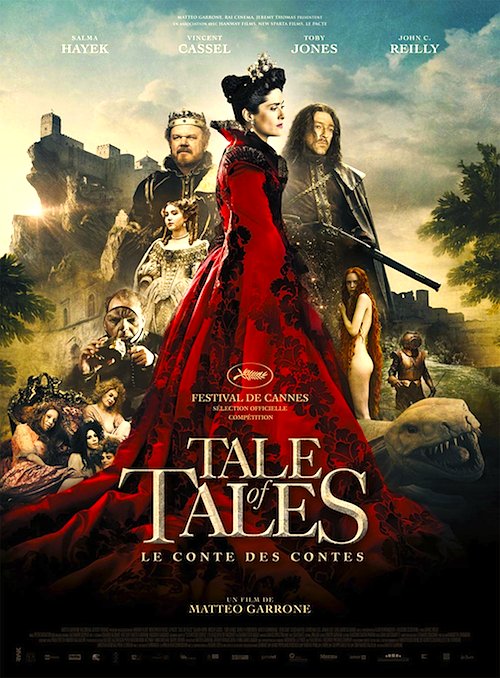By Joe Bendel. In National Socialist concentration camps, Jews who served as “Sonderkommando” were afforded modest privileges and allowed comparatively free movement within the confining walls. Yet, it was undeniably hellish duty. Charged with escorting prisoners into the gas chambers and cleaning up after the mass executions, their first order of business was often to dispatch their predecessors. The new Sonderkommando’s families frequently followed soon thereafter. Consequently, they had no illusions about their ultimate fate. It is rather understandable why the most significant uprising at Auschwitz-Birkenau was planned by the Sonderkommando. Saul Ausländer is part of the rebellion’s inner circle, but he will be distracted by an even more profound crisis in László Nemes’ Son of Saul, Hungary’s official foreign language Oscar submission, which opens this Friday at Film Forum.
Frankly, Son of Saul might be most effective if viewers are not fully briefed on what to expect. It is safe to confirm, this is indeed a Holocaust story, incorporating a very real event, executed with unusually personal immediacy. The resulting viewing experience is not merely bracing. It is sort of like being Tasered. However, judging from some colleagues’ reactions, it may well be that the more forewarned you are, the less potent Nemes’ approach will be, so proceed with caution.
It starts as just another day in the National Socialist death factory for Ausländer, until he sees a body that cracks his defensive shell. Like Ausländer, we see him only after his death. While not strictly adhering to Ausländer’s as-seen-through-his-eyes POV, Nemes largely limits his shots to what would easily be within his field of vision. As an experienced Sonderkommando, he is somewhat desensitized to the horrors that would have been horrific centerpieces of other Holocaust films. Instead, we get a sense of the kinetic maelstrom of death he must navigate.
To further emphasize its restrictive scope, Son of Saul was composed expressly for the pre-widescreen Academy aspect ratio. The audience is immediately aware just how much they are not seeing, necessarily feeling disoriented as a result. Nemes forces the audience to figure out Ausländer’s relationships to other Sonderkommando through the dramatic context of what follows. This is a remarkably physical film that is just as choreographed as any musical or martial arts extravaganza.
Evidently, Ausländer reluctantly agreed to help scrounge supplies for the revolt, because he understood how little he had to lose. However, when he thinks he recognizes the body in question, he starts recklessly improvising a scheme to prevent the requisite autopsy and find a Rabbi to say Kaddish. He will knowingly jeopardize the imminent uprising, but his mission is equally defiant in its way.
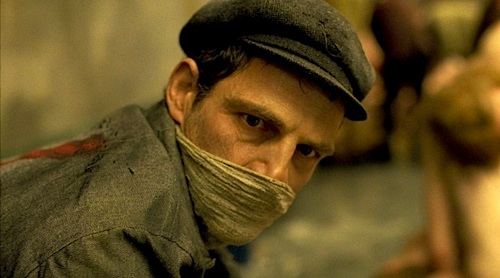
For most of the cast, simply surviving the non-stop bedlam constitutes quite a performance. However, Géza Röhrig is quietly devastating as Ausländer. Essentially, he shows us the stirrings of a long dormant soul struggling to assert itself. It is a painfully honest, desperately lean performance that will shame this year’s histrionically indulgent award-seeking performances (we’re looking at you, Carol).
Son of Saul is not exactly immersive, but it gives the audience a visceral sense of the confusion and dehumanization necessary to make the gas chambers run. This is an exhausting film, but also a uniquely powerful one, unlike almost any other well-meaning holocaust narrative. Highly recommended, it opens this Friday (12/18) in New York at Film Forum.
LFM GRADE: A
Posted on December 16th, 2015 at 7:02pm.
